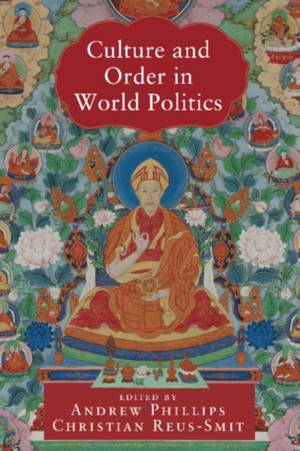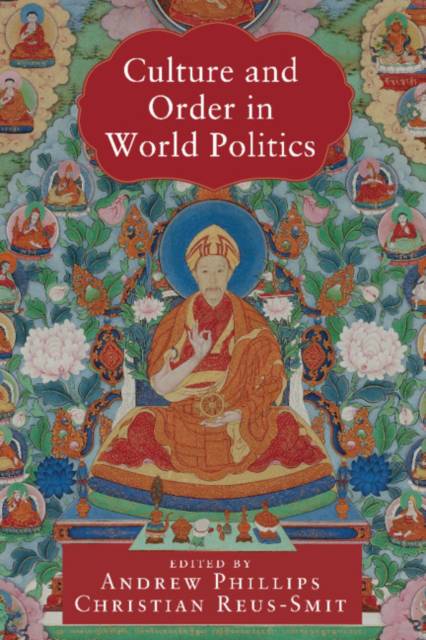
Je cadeautjes zeker op tijd in huis hebben voor de feestdagen? Kom langs in onze winkels en vind het perfecte geschenk!
- Afhalen na 1 uur in een winkel met voorraad
- Gratis thuislevering in België vanaf € 30
- Ruim aanbod met 7 miljoen producten
Je cadeautjes zeker op tijd in huis hebben voor de feestdagen? Kom langs in onze winkels en vind het perfecte geschenk!
- Afhalen na 1 uur in een winkel met voorraad
- Gratis thuislevering in België vanaf € 30
- Ruim aanbod met 7 miljoen producten
Zoeken
Culture and Order in World Politics
€ 72,45
+ 144 punten
Omschrijving
Understanding how cultural diversity relates to international order is an urgent contemporary challenge. Building on ideas first advanced in Reus-Smit's On Cultural Diversity (2018), this groundbreaking book advances a new framework for understanding the nexus between culture and order in world politics. Through a pioneering interdisciplinary collaboration between leading historians, international lawyers, sociologists and international relations scholars, it argues that cultural diversity in social life is ubiquitous rather than exceptional, and demonstrates that the organization of cultural diversity has been inextricably tied to the constitution and legitimation of political authority in diverse international orders, from Warring States China, through early modern Europe and the Ottoman and Qing Empires, to today's global liberal order. It highlights the successive 'diversity regimes' that have been constructed to govern cultural difference since the nineteenth century, traces the exclusions and resistances these projects have engendered and considers contemporary global vulnerabilities and axes of contestation.
Specificaties
Betrokkenen
- Uitgeverij:
Inhoud
- Aantal bladzijden:
- 396
- Taal:
- Engels
- Reeks:
Eigenschappen
- Productcode (EAN):
- 9781108718936
- Verschijningsdatum:
- 9/01/2020
- Uitvoering:
- Paperback
- Formaat:
- Trade paperback (VS)
- Afmetingen:
- 152 mm x 229 mm
- Gewicht:
- 526 g

Alleen bij Standaard Boekhandel
+ 144 punten op je klantenkaart van Standaard Boekhandel
Beoordelingen
We publiceren alleen reviews die voldoen aan de voorwaarden voor reviews. Bekijk onze voorwaarden voor reviews.








